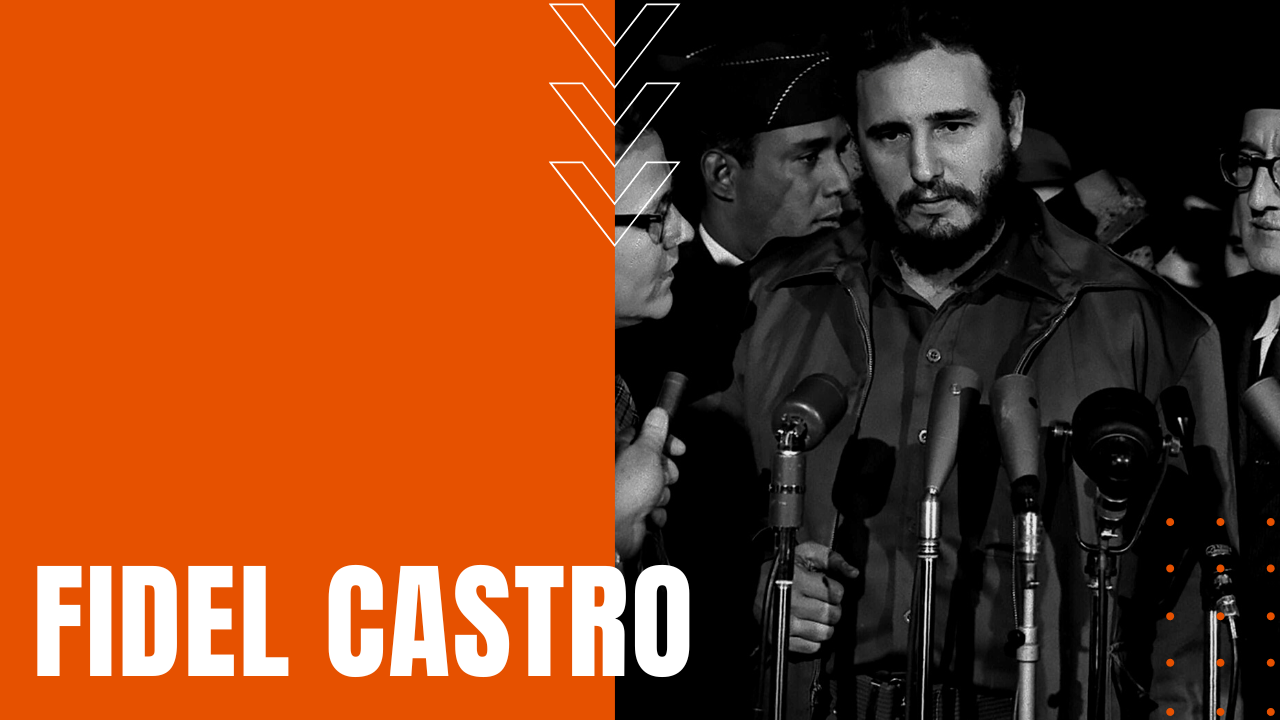Fidel Castro

Born in 1926 Birán Cuba, the son of a wealthy Spanish farmer, Fidel Castro embraced left-leaning, anti-imperialist views while studying law at the University of Havana, participating in rebellions against the right-wing governments of Colombia and the Dominican Republic before launching a failed coup d’etat of Cuban President Fulgencio Batista in 1953. After his release from a one-year prison
Flees to Mexico
sentence, Castro fled to Mexico where he formed the 26th of July Movement with his brother Raul and Che Guevara, returning to Cuba to lead a guerrilla war from the Sierra Maestra Mountains that led to Batista’s overthrow in 1959. Once in power, the single-party Socialist dictator drew the immediate Cold War ire of officials in the United States, leading Castro to align himself with the Soviet Union after a
Failed Bay of Pigs Overthrow by U.S.
covert American-inspired assassination attempt, an economic embargo and President John F. Kennedy’s failed 1961 Bay of Pigs Invasion. A year later, after the Soviet Union placed potential nuclear missile batteries on the island nation—a mere 90 miles from American soil—the Cold War reached its zenith during the Cuban Missile Crisis, which marked the closest the two warring superpowers came to mutually-assured nuclear annihilation. Leading the only Communist nation in the Western Hemisphere,
Supports Revolutionary Groups in Latin America
during the 1970s, Castro openly supported anti-imperialist revolutionary groups in Chile, Nicaragua and Grenada, as well as sending troops and financial aid to allies in the Yom Kippur, Ogaden and Angolan Wars, while in 1980, after some 10,000 Cubans attempted to gain asylum by taking refuge on the grounds of the Peruvian embassy in Havana, Castro formally announced that any Cubans wishing to
Mariel Boatlift
emigrate to the United States were now free to go, leading to the Mariel Boatlift of that same year, when 125,000 Cuban refugees fled to South Florida. Following the 1991 collapse of the Soviet Union and Cuba’s subsequent loss of Soviet financial backing, Cuba entered a period of economic distress known as the “Special Period,” before Castro helped to form the Latin American Bolivarian Alliance for the Americas in the 2000s—primarily with Hugo Chavez’ Venezuela—now known as the “pink tide.” Holding the distinction as the longest-reigning non-royal head of state in the 20th and early 21st centuries, as Castro’s health began to decline, he transferred power to his brother and vice president Raul, who was
Declining Health
later elected president in 2008. Following his death on November 25th, 2016, Castro’s supporters laud him as a champion whose socialist government freed a nation from U.S. hegemony, while his detractors point to extensive human rights abuses, the exodus of freedom-loving Cubans from their native homeland and the impoverishment of the Cuban economy, making Fidel Castro, one of the most polarizing figures during the darkest days of the Cold War.
